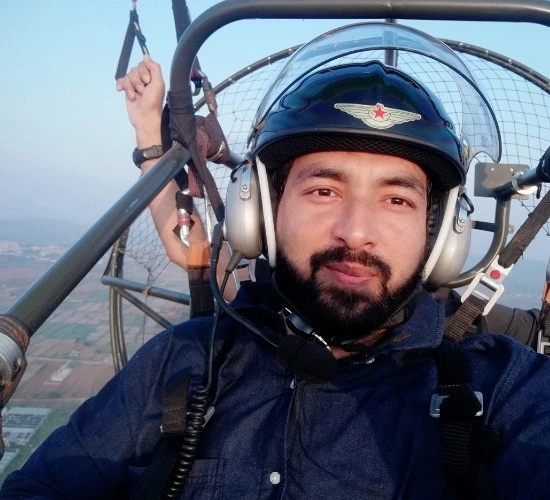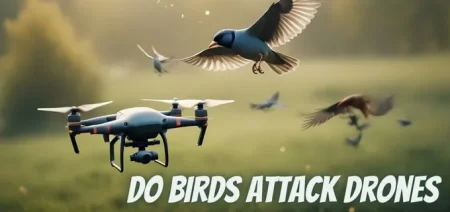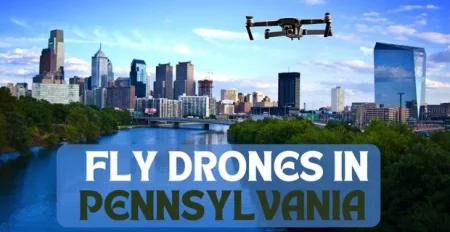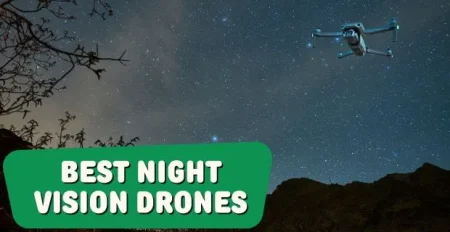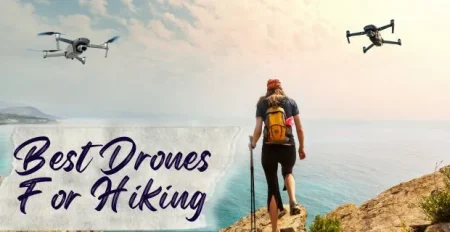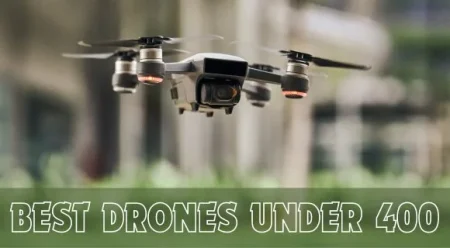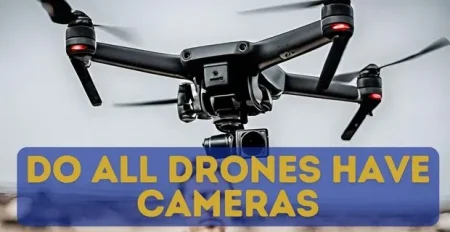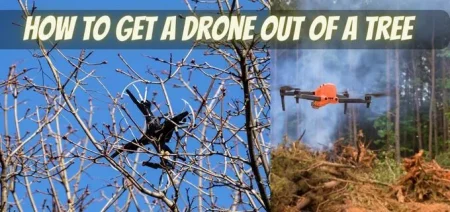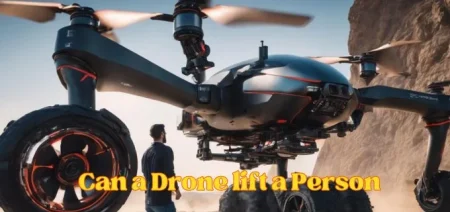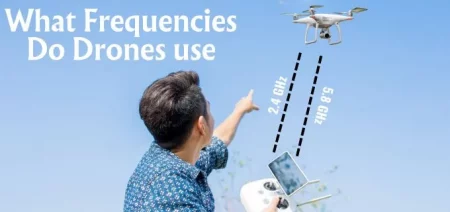
As John was relaxing on his patio, he suddenly heard a buzzing sound above his head. Looking up, he saw a small drone flying over his house, and he couldn’t help but wonder who was flying it and why. While drones can be a great tool for aerial photography, mapping, and delivery services, they can invade privacy and cause safety concerns. John realized he needed to take action to prevent drones from flying over his property without his permission.
How To Stop Drones From Flying Over Your House
If you’re concerned about drones flying over your house, it’s important to know How To Stop Drones From Flying Over Your House. This article is a comprehensive guide offering information and tips on preventing drones from flying over your property.
Know Your Rights- Drone flying over Your House is Legal?
Knowing your rights is essential in preventing drones from flying over your house.
The FAA regulates the use of drones in residential areas in the United States. It is illegal to fly drones over private property without the owner’s permission, and drone pilots must follow certain guidelines regarding altitude and distance from people and property.
If you suspect that a drone is flying over your property without your permission, there are several steps you can take to protect your rights. You can start by contacting the drone operator and asking them to stop.
If the drone pilot refuses to comply, you can file a complaint with the FAA. The FAA has a process for handling complaints related to drone activity, and they take violations of drone regulations seriously.
According to the FAA, drones can legally fly over private property if they’re flying under FAA rules and regulations. It’s important to note that drone pilots must keep a safe distance from people and property on the ground.
Moreover, several states and municipalities have also established laws related to drone activity. For example, some states have passed laws prohibiting drones from flying over certain areas or requiring drone pilots to obtain a permit before flying in certain areas.
It’s also important to note that while drones can legally fly over private property, they cannot be used to violate someone’s privacy. It includes using a drone to spy on someone or take pictures or videos of someone in a private setting without their consent.
How Much Airspace Do You Own Over Your House?
The FAA has established airspace regulations that govern the use of the airspace above private property, which is considered navigable airspace subject to federal regulation. Property owners generally do not own the airspace above their property, but they can apply for a temporary no-fly zone waiver to establish restrictions.
Property owners also have certain legal rights to protect their property from drone activity, including taking legal action against drone pilots who are causing harm or damage to their property or violating their privacy.
Being aware of the rules and regulations governing drone usage in your locality is crucial, and you should take the necessary steps if required.
Penalty for shooting down a drone
It is illegal to shoot down a drone in the United States, and doing so can result in serious legal consequences. Shooting down a drone can result in charges of destruction of property and reckless endangerment, as well as potential civil lawsuits for damages.

The Federal Aviation Administration (FAA) states that causing damage to or destroying a drone can lead to severe consequences, such as criminal charges and fines of up to $25,000. In addition, individuals who shoot down a drone may be held liable for any damages or injuries caused by the falling drone.
It’s important to note that even if a drone is flying over your property and causing a nuisance, you cannot legally shoot it down. Instead, it is advised to utilize legal procedures to handle the problem, such as reporting the issue to local law enforcement or filing a complaint with the FAA.
Ways to Stop Drones from Flying Over Your House
So if shooting down a drone is illegal, you may be wondering how to take down a drone and what options you have to stop drones from flying over your house. There exist various methods to prevent drones from flying over your house. Physical barriers such as nets, fences, and anti-drone shields can prevent drones from entering your property.
Technology-based solutions such as signal jammers and GPS blockers can also be effective in preventing drones from flying over your house. It’s crucial to remember that some methods to prevent drones from flying over your property may be illegal. Hence it’s essential to research before trying them out.
1. Technology-based solutions
Technology-based solutions can also be a practical approach to prevent drones from flying over your property. Some examples of these solutions are as follows, and they can be very effective in deterring drone activity:
Signal Jammers:
Signal jammers can disrupt the GPS and radio signals that drones use to navigate and communicate with their operators. However, it’s important to note that using signal jammers is illegal in most countries, including the United States.
Signal Spoofing:
Signal spoofing is a technique that involves mimicking the GPS and radio signals that drones use to navigate and communicate. One possible way to prevent drone activity is by using signal jammers, which can disrupt the drone’s communication system and cause it to lose its connection with the operator. This could result in the drone crashing or flying away. However, like signal jammers, signal spoofing is illegal in most countries.
Drone Detection Systems:
Drone detection systems use sensors and cameras to detect and track drones in the air. You can install these systems on the roof of your house or in other strategic spots around your property. Once a drone is detected, the system can alert your mobile phone or another device.
Drone Hijacks:
Drone hijacks involve taking control of a drone’s navigation system and redirecting it away from your property. It is important to note that hijacking a drone is illegal and risky if not performed correctly.
GPS Blockers:
GPS blockers are devices that can disrupt the GPS signals that drones use to navigate. However, using GPS blockers, like signal jammers and spoofing, is illegal in most countries.
Before attempting any technology-based solution, it’s important to research local laws and regulations to ensure that you’re not breaking any laws.
2. Legal remedies
Legal remedies are also available for individuals who want to prevent drones from flying over their property. Here are some examples of legal remedies that can be used:
Filing a Complaint:
If a drone pilot is flying over your property without permission, you can file a complaint with the Federal Aviation Administration (FAA) or local law enforcement. The FAA can investigate the complaint and take action against the drone pilot if necessary.

Taking Legal Action:
If a drone pilot is causing harm or damage to your property, you can take legal action against them. This can include filing a civil lawsuit for damages or seeking a restraining order to prevent the drone pilot from flying over your property.

Talk to Local Government:
You can talk to your local government representatives about your concerns with drone activity in your area. They may be able to pass local ordinances that restrict drone use or establish designated areas where drones can and cannot fly.
Lobby for Legislation:
You can also lobby for legislation at the state or federal level that restricts the use of drones in specific areas or for specific purposes. This may involve collaborating with local advocacy groups or contacting your elected officials to express your worries.
Use No-Fly Zones:
Another legal option is to establish a no-fly zone around your property. This can be done by registering your property with the FAA and requesting that it be designated as a no-fly zone. This can help prevent drone pilots from flying over your property without permission.

Before pursuing legal remedies, it’s important to consider legal action’s potential costs and benefits.
3. Physical barriers (Mostly Illegal)
Physical barriers such as nets, fences, and walls are a popular and efficient way to keep drones from entering your property.
Nets and Fences:
Erecting physical barriers such as nets and fences can help prevent drones from entering your property. Barriers made from various materials, such as metal, wood, and plastic, can be used to prevent drones from flying over your property.

Fences can also serve as a visible boundary that signals drone operators that they are approaching the private property.
Ask the Drone Pilot to Stop Flying Over Your Property
If you can identify the drone pilot, you can ask them to stop flying over your property. It may be enough to deter the pilot from flying over your property again.
Anti-Drone Shields:
Anti-drone shields are physical barriers that use materials such as metal or plastic to block signals and prevent drones from entering a protected area. These protective shields can be positioned on the rooftop of your residence or at other strategic points within your property.
Educate Your Neighbors:
Educating your neighbours about the dangers of flying drones over private property can also help prevent unwanted drone activity in your area. This can include sharing information about privacy laws and the potential risks of flying drones near people or property.
Lasers:
Lasers can disable drones by disrupting their sensors and communication systems. However, it’s important to note that using lasers to disable drones may be illegal in some jurisdictions.
Drone Eagles:
Some companies have developed robotic eagles that can capture and remove drones from the sky. These eagles are designed to mimic real eagles’ hunting behaviour and can effectively capture small drones.

Anti-Drone Drones:
Anti-drone drones are specifically designed to intercept and disable other drones. These drones can be equipped with nets, lasers, or other tools to disable a drone in flight.
Bullets:
Shooting down a drone may seem quick and easy, but it’s important to note that discharging firearms within city limits is illegal in most areas.
While physical barriers can effectively prevent drones from entering your property, it’s important to note that some methods may be illegal. Before attempting any physical barrier, it’s important to research local laws and regulations to ensure that you’re not breaking any laws.
Why is there a drone over my house
If you notice a drone flying over your house, you may wonder why it is there. Here are some reasons why a drone might be flying over your house:
Aerial Photography or Videography:
Drones are commonly used to capture aerial photography or videography for commercial or personal purposes. The drone operator may fly the drone over your house to capture images or footage of your property or surrounding area.
Delivery Services:
Some companies, such as Amazon and Google, are exploring using drones for delivery services. The drone may fly over your house to deliver a package to your neighbour’s house or nearby location.
Law Enforcement or Surveillance:
Law enforcement and police are utilizing drones more frequently for surveillance purposes. The police drone has good range and may fly over your house for law enforcement or surveillance reasons.
Hobby or Recreational Use:
Some people fly drones as a hobby or for recreational purposes. The drone operator may be flying over your house simply for enjoyment or to practice flying skills.
If you believe the drone is breaking these rules or causing a safety concern, you can report it to the FAA or local law enforcement.
Drones flying over my house at night.
Having a drone flying over your house can be unsettling, especially at night. While it is legal for a drone to fly over your home, there are certain rules that drone pilots must follow to ensure the safety of everyone involved.
According to the FAA, drone pilots must follow specific rules for drones. These rules include not flying above 400 feet (120 m), not flying faster than 100 miles (160 km) per hour, and not flying at night unless they have special permission from the FAA. If a drone pilot breaks these rules, it can be reported to the FAA for investigation.
While it may be unsettling to have a drone flying over your house at night, it’s important to remember that drone pilots must follow specific rules to ensure safety. If you suspect a drone pilot is breaking these rules, it’s important to report the incident to the FAA for investigation.
A neighbour is flying a drone over my house.
It can be frustrating and concerning when a neighbour is flying a drone over your house without your permission. However, it’s important to approach the situation calmly and find a resolution that works for both parties involved.
One initial action is to talk to your neighbour politely and requests that they cease flying their drone over your property. They may not have realized that their actions were causing discomfort or concern, so it’s important to express your concerns in a non-confrontational manner.
If your neighbour refuses to stop flying the drone over your property, you may want to consider contacting local law enforcement or filing a complaint with the FAA. In some cases, the use of drones in residential areas may be subject to local ordinances or regulations, so it’s important to familiarize yourself with the laws in your area.
It may also be helpful to work with your neighbour to establish clear boundaries and guidelines for using drones in your neighbourhood. It can help prevent future conflicts and ensure that everyone can enjoy their property without causing disturbance to others.
Regardless of the circumstances, handling the situation with a composed and courteous demeanour is crucial. By working with your neighbour and following the appropriate legal channels, you can find a resolution that works for everyone involved.
How to Stop Drones From Flying Over Your House and Landing in your yard
If you’re concerned about drones flying over your house and potentially landing in your yard or around your underpinning, there are several steps you can take to address the issue:
Install physical barriers:
Consider installing physical barriers such as nets or fences around your property to prevent drones from flying over or landing in your yard. It can also help protect your underpinning.
Use anti-drone technology:
As mentioned earlier, various anti-drone technologies are available on the market that can detect and disable drones. These may be useful in preventing drones from flying over and landing in your yard.
Talk to your neighbours:
If you suspect a neighbour is flying the drones, consider talking to them about your concerns and asking them to stop.
Contact the authorities:
If you believe the drone flights are illegal or pose a safety risk, consider contacting local law enforcement or filing a complaint with the Federal Aviation Administration (FAA). Ensure that you provide comprehensive information, including any photos or videos you may have of the drone, to support your claim.
Seek legal action:
If the drone flights continue causing a nuisance or invading your privacy, you may be able to take legal action against the operator.
Taking proactive steps and seeking assistance from the appropriate authorities can help prevent drones from flying over and landing in your yard or around your underpinning.
Conclusion
Drones have become more prevalent in our skies, and it’s important to know how to address any concerns or issues arising from their use. From installing physical barriers and using anti-drone technology to talking to neighbours and contacting authorities or taking legal action, there are several steps you can take to prevent drones from flying over your house.
It’s important to approach the situation calmly and respectfully while being aware of the legal and safety considerations involved. Taking proactive steps and seeking assistance when needed can help protect your privacy and property from unwanted drone activity.
